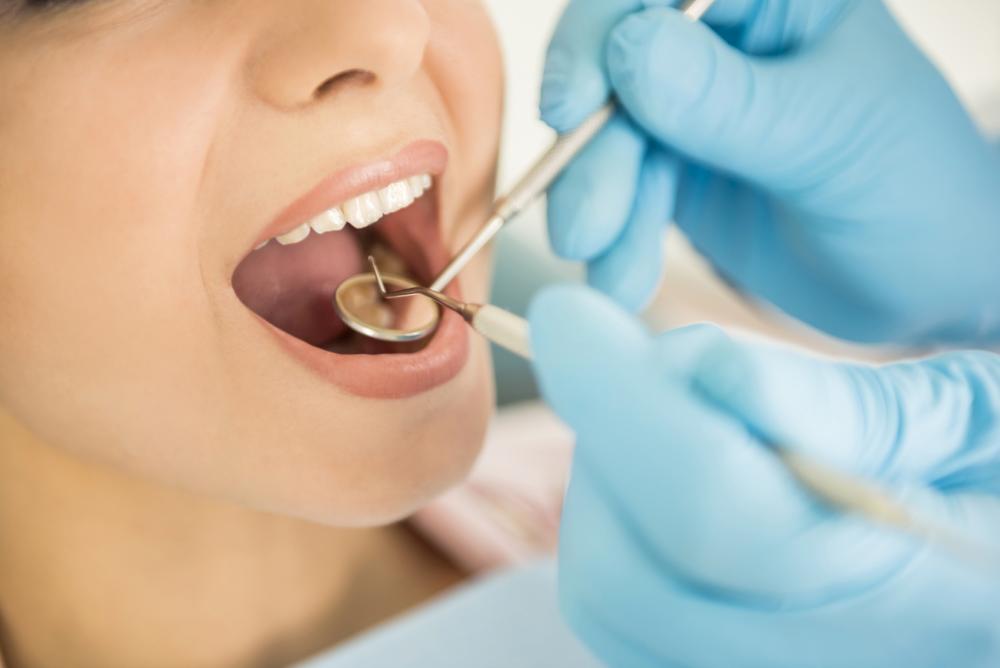What to Get out of Your First Visit to a Dentist in Eugene Oregon
What to Get out of Your First Visit to a Dentist in Eugene Oregon
Blog Article
A Guide to Typical Oral Problems That Require a Dental practitioner's Care
Understanding the series of dental conditions that necessitate specialist treatment is paramount for keeping optimal dental health and wellness. Toothaches, for instance, can be symptomatic of serious problems such as cavities, broken teeth, or abscesses, each needing particular treatments like fillings or origin canals. Gum disease, from the onset of gingivitis to much more severe periodontitis, highlights the value of regular oral check-ups and cleanings. Affected wisdom teeth and jaw conditions can present substantial discomfort and complications. Ensuring prompt check outs to the dental expert can reduce these concerns efficiently, but just what are the treatments and indications entailed?
Toothaches
Toothaches are an usual oral condition that can range from moderate pain to serious discomfort, commonly indicating a hidden issue that calls for expert interest. This pain can come from a selection of sources, including dental tooth cavities, cracked or fractured teeth, and dental abscesses. Each of these conditions positions substantial dangers if left untreated, possibly resulting in much more extreme problems.
Oral dental caries, additionally recognized as caries, are caused by the buildup of plaque that deteriorates tooth enamel, leading to openings or pits in the influenced teeth. Abscesses are painful infections at the origin of a tooth or in between a tooth and the periodontal, usually resulting from serious degeneration or unattended cavities.
Effective treatment of toothaches involves dealing with the source. This might include dental fillings for tooth cavities, crowns for cracked teeth, or origin canals and prescription antibiotics for abscesses. Very early intervention by a dental professional can protect against more degeneration and minimize pain, guaranteeing optimum dental health.
Gum Tissue Illness
Gum illness, a common yet usually neglected oral problem, shows up with inflammation and infection of the gum tissues and supporting cells. This condition mainly occurs in 2 phases: gingivitis and periodontitis. Gingivitis, the milder kind, offers with signs and symptoms such as red, puffy gum tissues that may hemorrhage easily throughout brushing or flossing. If left untreated, gingivitis can advance to periodontitis, a much more serious type identified by the destruction of the sustaining bone and connective cells, ultimately causing tooth loss.
The key reason for gum condition is microbial plaque, a sticky, colorless film that regularly develops on teeth. Poor oral hygiene, smoking, genetic tendency, and particular medical problems, such as diabetic issues, can aggravate the risk of creating gum illness. Routine dental exams are critical for early discovery and management of this condition.
Treatment for gum illness ranges from specialist dental cleaning and scaling to advanced procedures like root planing and gum surgical treatment, depending on the extent. Preserving good dental health practices, including cleaning twice daily, flossing, and utilizing an antiseptic mouth wash, can considerably lower the risk of periodontal illness and promote much healthier gum tissues.
Cavities
Dental caries, additionally called tooth decays, are an usual dental problem characterized by the devastation of tooth enamel as a result of acid-producing bacteria in the mouth. These microorganisms prosper on sugars and starches from food and drinks, producing acids that slowly deteriorate the enamel, bring about tooth cavity formation.
Early-stage cavities may disappoint symptoms, however as they progress, they can trigger tooth pain, sensitivity to cool or hot, noticeable openings or pits in the teeth, and staining. If left untreated, dental caries can permeate deeper layers of the tooth, potentially resulting in severe pain, infection, and even missing teeth.
Stopping cavities involves a combination of good oral health techniques and nutritional habits. Regular cleaning with fluoride toothpaste, flossing, and routine dental check-ups are important. Dental experts may additionally suggest added safety nets, such as fluoride treatments and dental sealants, to protect teeth from degeneration.
Treatment for dental caries depends on their extent. Small tooth cavities can be attended to with oral fillings, which bring back the tooth's framework. visit homepage Advanced cases may call for crowns my review here or even root canal treatment if the degeneration has gotten to the tooth's pulp. Timely treatment by a dental expert is important to prevent difficulties and keep general oral health and wellness.

Impacted Wisdom Teeth
Affected wisdom teeth are a prevalent dental issue that occurs when the third molars, frequently referred to as knowledge teeth, stop working to completely arise or align effectively within the mouth. This problem frequently arises from insufficient area in the jaw or an irregular development angle of the teeth. Impacted knowledge teeth can result in a variety of problems, consisting of infection, damage, and pain to nearby teeth.
When knowledge teeth become affected, they are often partly erupted or continue to be completely below the gum line. This partial eruption can produce a path for microorganisms to enter the gum tissues, causing infections that materialize as swelling, discomfort, and also fever. Furthermore, affected knowledge teeth can apply stress on surrounding teeth, possibly creating crowding or moving.
A thorough dental examination, normally involving X-rays, is crucial for identifying impacted knowledge teeth. Therapy frequently entails medical removal, done by a dental cosmetic surgeon. The treatment intends to minimize pain and protect against additional complications, such as cysts or damages to surrounding bone structures. Post-operative treatment is essential to make certain appropriate healing and lessen the danger of infection. Normal oral examinations are a good idea to check the condition and preserve oral health.
Jaw Problems
Jaw disorders, collectively referred to as temporomandibular joint (TMJ) problems, incorporate a range of problems that impact the jaw joint and bordering muscular tissues. These conditions can show up with symptoms such as discomfort or inflammation in the jaw, difficulty chewing, a clicking or standing out audio when opening or shutting the mouth, and also persistent frustrations. TMJ conditions can arise from different variables, including arthritis, jaw injury, or habitual actions like teeth grinding or jaw clenching.
Diagnosis of TMJ disorders typically involves an extensive analysis by a dental you can look here expert, consisting of a physical assessment of the jaw, dental X-rays, and sometimes progressed imaging techniques like MRI or CT checks to evaluate the joint's problem. Non-invasive approaches such as physical treatment, oral splints, and drugs intended at minimizing inflammation and pain are frequently first-line therapies.
Very early intervention by a dental professional is essential to prevent the progression of TMJ disorders and to maintain general oral health. People experiencing relentless jaw discomfort or dysfunction must seek prompt examination and treatment.
Conclusion
Keeping oral wellness requires prompt professional care to resolve typical oral conditions. Toothaches usually show underlying issues such as cavities, broken teeth, or abscesses, needing prompt intervention. Gum tissue illness, from gingivitis to periodontitis, demands normal dental exams and cleansings to avoid development. Affected wisdom teeth and jaw problems additionally call for specialist attention to ease discomfort and avoid more complications. Regular oral gos to are crucial for identifying and dealing with these conditions, ensuring total oral health and well-being.
Oral cavities, likewise understood as cavities, are caused by the buildup of plaque that erodes tooth enamel, leading to holes or pits in the influenced teeth. Abscesses are painful infections at the origin of a tooth or in between the gum and a tooth, commonly resulting from serious degeneration or without treatment dental caries.

Additionally, impacted knowledge teeth can apply stress on neighboring teeth, possibly causing crowding or shifting.
Report this page